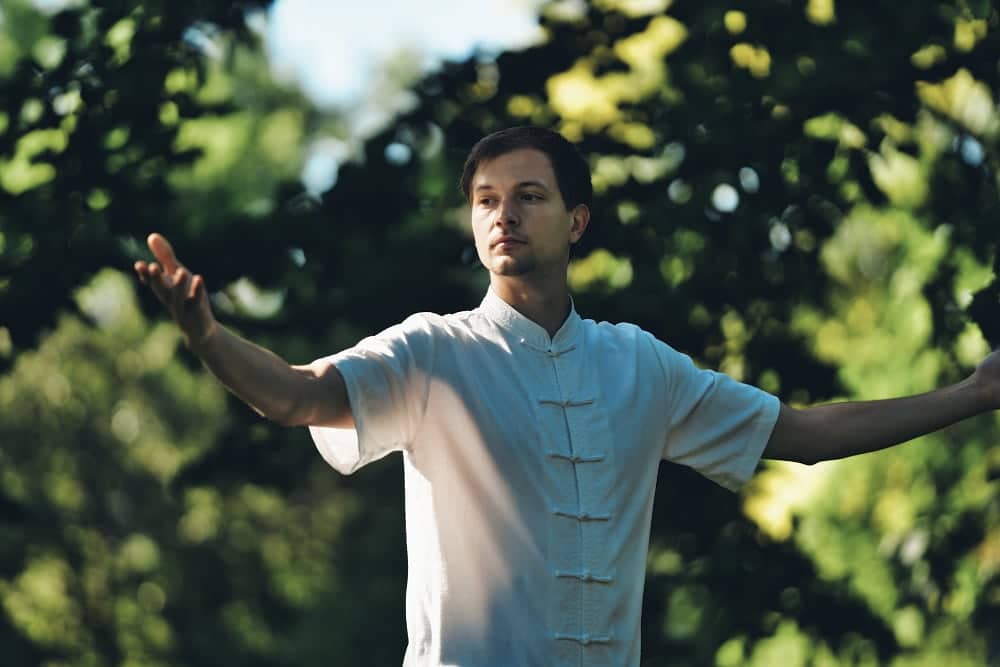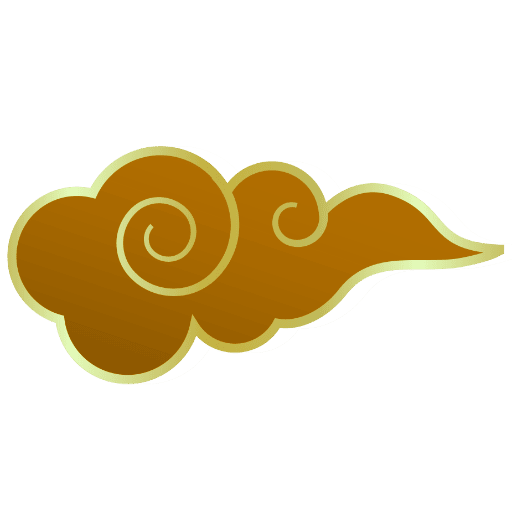Qigong
Introduction: The Mastery of Breathing and Power
Qigong is a practice that can be understood as an exercise for breathing power. The term "Qi" refers to energy, which we need to stay active and healthy. Just like a car needs gas or a plane needs kerosene to run, our bodies also require Qi to function well.

The Physical and Mental Bod
Our existence consists of a physical body and a mental body, which includes both mind and spirit. Both are crucial for our overall well-being and the quality of our lives. An unbalanced mind can lead to various physical issues, such as tension, pain, and fatigue, while physical problems can also result in significant mental trauma, including anxiety and depression. It is essential to recognize that these two aspects of ourselves are interconnected; when one is out of harmony, the other often suffers as well. Qigong is an effective practice that restores harmony between our physical and mental selves. This ancient art, traditionally used by Daoists, involves gentle movements, controlled breathing, and focused meditation. It not only enhances our physical health but also deepens our mental clarity and emotional resilience.
Fascia, Tendons and Muscles
The tissue that connects our bones and helps control our bodies is important to train so everything can support itself. We need to take care of our bodies and ensure that the tissue gets enough blood flow. This helps prevent illness, boosts our immune system, and keeps our minds clear.
Bones and Alignment
This is the foundation of who we are. This is where our spiritual awareness comes from. It's important to pay attention to our bone density and alignment so we can connect with heaven and earth. Our spinal fluid and nervous system rely on this strong foundation. By doing this, we can enhance our Shen (spirit).
The Five Major Organs
In Daoist theory and Traditional Chinese Medicine, the body is governed by five major internal organs: the Heart, Liver, Spleen, Lung, and Kidney. These organs function as networks that organize, regulate, store, and distribute vital energy throughout the body. Unlike Western anatomy, which views organs as separate physical structures, the Daoist perspective understands these organs as extended functional networks throughout the entire body.
The Heart
houses the mind and spirit (Shen) and governs blood circulation. In Qigong practice, cultivating the Heart brings mental clarity, emotional stability, and consciousness. The Heart is associated with the emotion of joy, and when balanced, creates feelings of compassion and love.
The Liver
stores blood and ensures the smooth flow of energy throughout the body. The Liver houses the Hun, or ethereal soul, which is responsible for our life plans, projects, and creative vision. The Liver connects to the emotion of anger, and Qigong movements help release stagnant energy that shows up as frustration or irritability.
The Spleen
transforms and transports nutrients from food and manages how fluids move through the body. The Spleen houses the Yi, which represents our ability to think clearly, set intentions, and remember things. Connected to the emotion of worry, a balanced Spleen supports clear thinking and strong digestion.
The Lung
receives energy through the breath and spreads it throughout the entire body, also governing the skin and immune system. The Lung stores the Po, the corporeal soul, which connects us to our physical body and natural instincts. The Lung relates to grief and sadness, and breathing practices in Qigong help process these emotions while strengthening how we breathe.
The Kidney
stores Jing (essence), produces bone marrow, and is known as the "Root of Life." The Kidney serves as the reserve generator of energy, supplying extra Qi to all organs when needed. Connected to fear and housing the Zhi (willpower), the Kidney provides determination and drive when balanced.
In Qigong practice, specific movements and breathing exercises activate each organ's energy, clearing blockages in the meridians and improving organ function. The five organs work together in harmony to sustain life, and when one organ isn't functioning well, it affects all the others. Through intentional breathing, focused attention, and coordinated movement, Qigong practitioners bring fresh and nourishing energy directly into the five internal organs while cleansing them of stagnant or impure energy that causes illness.
Five Animals Qigong
Wu Xing Qi Gong
Five Animals Qigong uses five static standing positions to strengthen your tendons, fascia, and muscles, and enhance how efficiently your body uses oxygen. By holding each animal posture, you develop deep structural strength while balancing your organ systems according to the Five Elements. It is highly recommended to start your qigong journey with this practice."
Eight Brocades Qigong
Ba Duan Jin Qi Gong
Eight Brocades Qigong uses eight flowing movements to open your meridians, stretch your body, and circulate qi throughout your energy channels. By working through each brocade sequence, you clear blockages at the joints and strengthen your internal organs while combining breath, movement, and intention. This nearly thousand-year-old practice is highly recommended for beginners building their qigong foundation.

